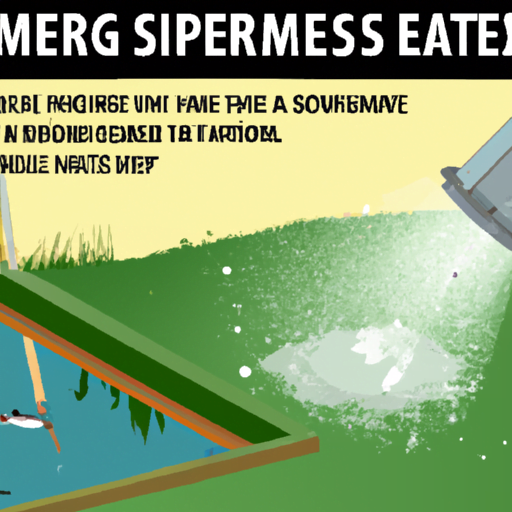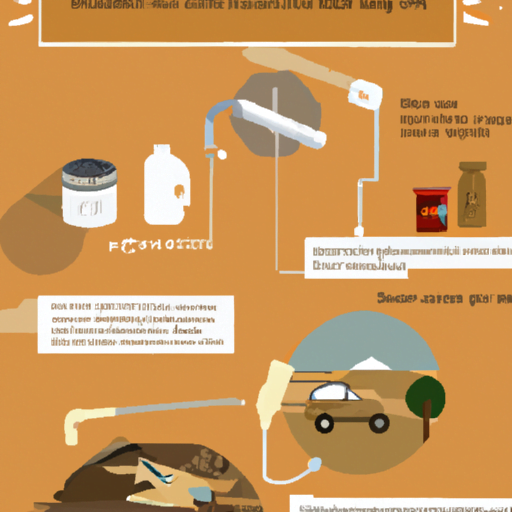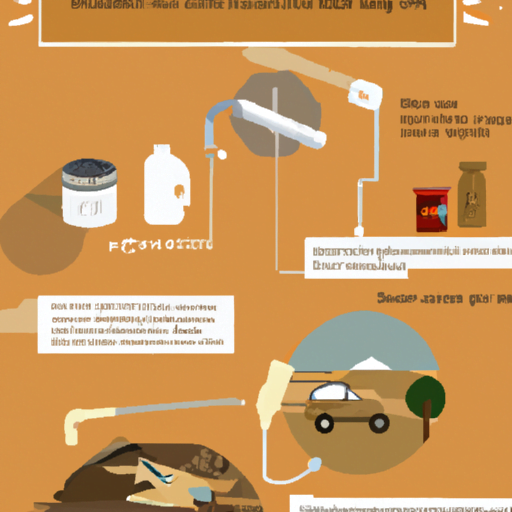So, you’ve decided to explore the world of off-grid living. Good for you! It’s a great way to disconnect from the modern world and become more self-sufficient. One of the biggest challenges you might face is accessing water without electricity. After all, most traditional methods of getting water, like turning on a faucet, require power. But don’t worry, there are definitely ways to get water without relying on the grid. In this article, we’ll dive into the various methods you can use to access water off the grid, even without electricity.
Now, let’s talk about wells. Can you get water from a well without electricity? The answer is yes! In fact, wells have been used for centuries as a reliable source of water. If you’re lucky enough to have a well on your property, you’re already one step ahead. To access the water without electricity, you can use a hand pump or a manual bucket system. These methods may require some physical effort, but they are reliable and sustainable options for off-grid living. In the article, we’ll explore these methods in more detail and provide you with some tips on how to maintain and care for your well.
Another method you can consider is rainwater harvesting. All you need is a system to collect rainwater, such as a rain barrel or a more elaborate setup with gutters and storage tanks. With proper filtration and treatment, rainwater can be a great source of clean water off the grid. We’ll discuss the different components you’ll need for a rainwater harvesting system, as well as some considerations for using rainwater for drinking and cooking.
If you’re near a natural water source, like a river or a stream, you can also explore the option of using a gravity-fed system. By setting up a series of pipes and valves, you can tap into the flow of the water and direct it to your property. Again, proper filtration and treatment are necessary to ensure the water is safe to use. We’ll delve into the specifics of setting up a gravity-fed system and provide you with some tips on how to make it work efficiently.
So, as you can see, there are plenty of options for accessing water without electricity when living off the grid. From wells to rainwater harvesting and gravity-fed systems, you have the power to be self-sustaining and independent. In the rest of the article, we’ll go into more detail on each method and provide you with all the information you need to make a well-informed decision. Off-grid living can be challenging, but with the right knowledge and resources, you can thrive in your self-sufficient lifestyle.

Off Grid Living: How to Access Water Without Electricity
Off grid living is becoming an increasingly popular lifestyle choice for those seeking independence, sustainability, and a closer connection to the natural world. By living off the grid, you free yourself from the reliance on traditional utilities and create a self-sufficient environment. One of the main challenges of off grid living, however, is accessing water without electricity. In this article, we will explore various methods and techniques for obtaining water off the grid.
Understanding Off Grid Living
Before diving into the specifics of accessing water without electricity, it is important to understand the concept of off grid living. Off grid living refers to a lifestyle where individuals or families generate their own electricity, produce their own food, and rely less on traditional utilities such as water, gas, and electricity. Living off the grid often involves utilizing renewable energy sources and embracing self-sufficiency.
Benefits of Off Grid Living
Choosing to live off the grid offers numerous benefits. One of the major advantages is energy independence. By generating your own electricity through solar panels or wind turbines, you are no longer at the mercy of fluctuating energy prices or power outages. Off grid living also results in reduced environmental impact, as you rely less on fossil fuels and contribute less to carbon emissions. Additionally, living off the grid promotes greater self-sufficiency and can lead to significant cost savings in the long run.
Challenges of Off Grid Living
While off grid living offers many advantages, it is not without its challenges. One of the main difficulties is the limited access to modern conveniences. Without connection to the grid, certain amenities such as reliable internet access, television, and appliances may be compromised. Another challenge is the higher initial investment required to set up off grid systems for electricity, water, and waste management. Additionally, maintenance and repairs of off grid systems can be more time-consuming and costly. Finally, there is the potential for water shortages, especially in dry regions or areas without reliable natural water sources.
Why Choose Off Grid Living?
Despite the challenges, many individuals and families choose to embrace an off grid lifestyle. Some people desire the simplicity and freedom that comes with living off the grid. They seek to disconnect from the hectic pace of modern life and find solace in a more self-sustainable lifestyle. Others are driven by a commitment to environmental consciousness and sustainable practices, wanting to reduce their ecological footprint and live in harmony with nature. Moreover, living off the grid allows individuals to have more control over their resources and a greater sense of autonomy.
Exploring Alternative Water Sources
Accessing water without electricity is crucial for off grid living. Fortunately, there are various alternative water sources that can be tapped into. Understanding the importance of water and exploring natural water sources are the first steps in acquiring water off the grid. Natural water sources may include streams, rivers, lakes, or even underground aquifers. However, it is essential to consider water quality and purification before utilizing these sources for everyday use.
Utilizing Rainwater Harvesting
Rainwater harvesting is a popular method of accessing water without electricity. Setting up rainwater collection systems is relatively simple and can provide a sustainable and reliable source of water. The first step is to choose suitable containers or tanks to store the collected rainwater. These containers should be durable, food-grade, and have a sufficient capacity to meet your water needs. Installing gutters and downspouts on your roof will enable you to direct rainwater to your storage tanks. It is important to treat rainwater properly before using it for potable purposes, as it may contain contaminants or impurities.
Setting Up a Well
Another method to access water off the grid is by setting up a well. Locating a suitable water source is the first step in this process. Depending on the geology of your area, digging a well may require professional expertise. Drilling a well involves using specialized equipment to reach the groundwater reserves. Once the well is drilled, a pump needs to be installed to bring the water to the surface. Regular maintenance and troubleshooting are essential to ensure the well continues to provide a reliable source of water.
Conclusion
Off grid living offers a unique opportunity to live a more sustainable and self-sufficient lifestyle. Accessing water without electricity is a fundamental aspect of this lifestyle and can be achieved through various methods such as rainwater harvesting and well drilling. By understanding the importance of water and exploring alternative water sources, you can ensure a resilient future for your off grid living. Whether you choose to live off the grid for the desire for a simplified lifestyle, environmental consciousness, or control over your resources, accessing water without electricity is a crucial aspect of successful off grid living. Embrace the challenge and enjoy the rewards of this sustainable lifestyle choice.





